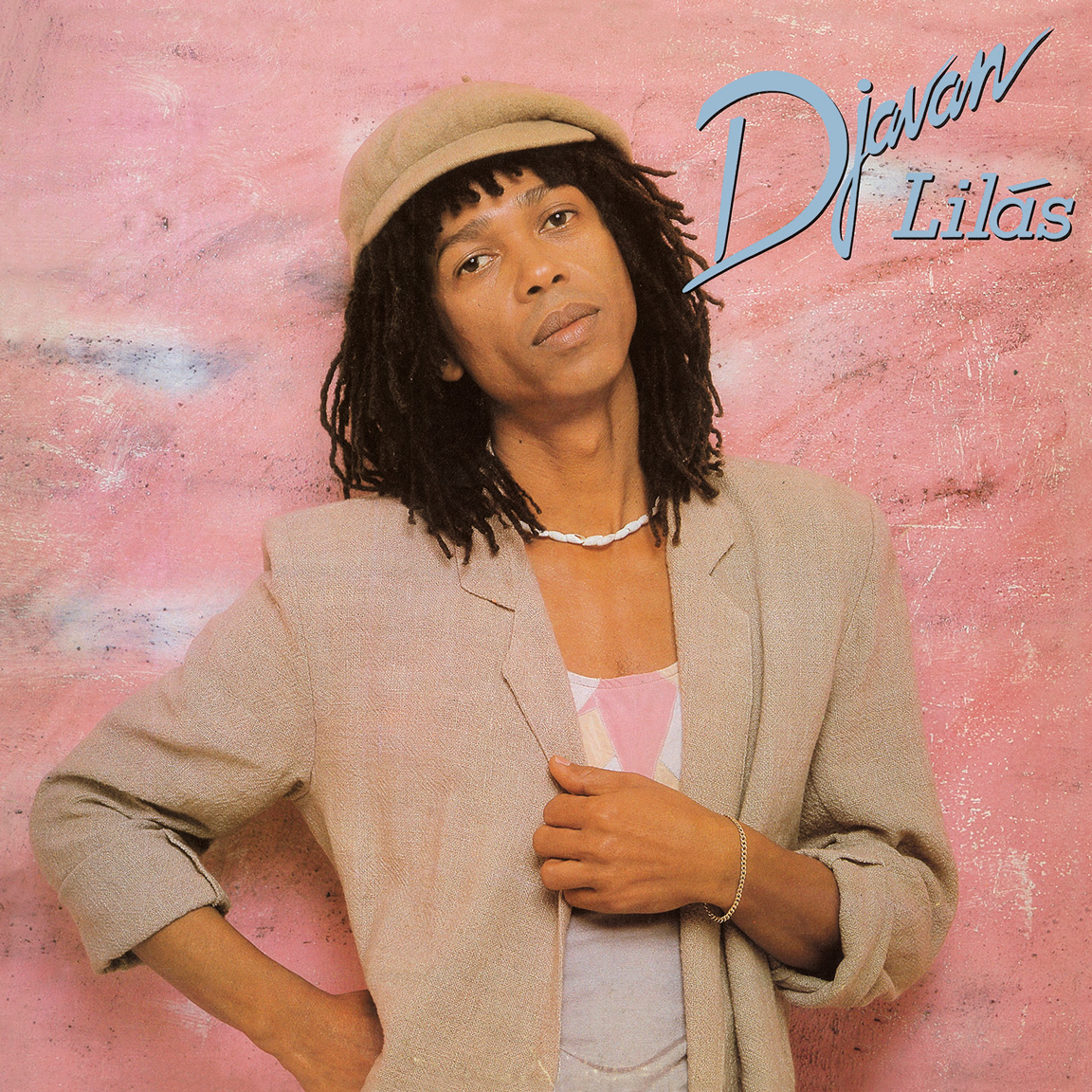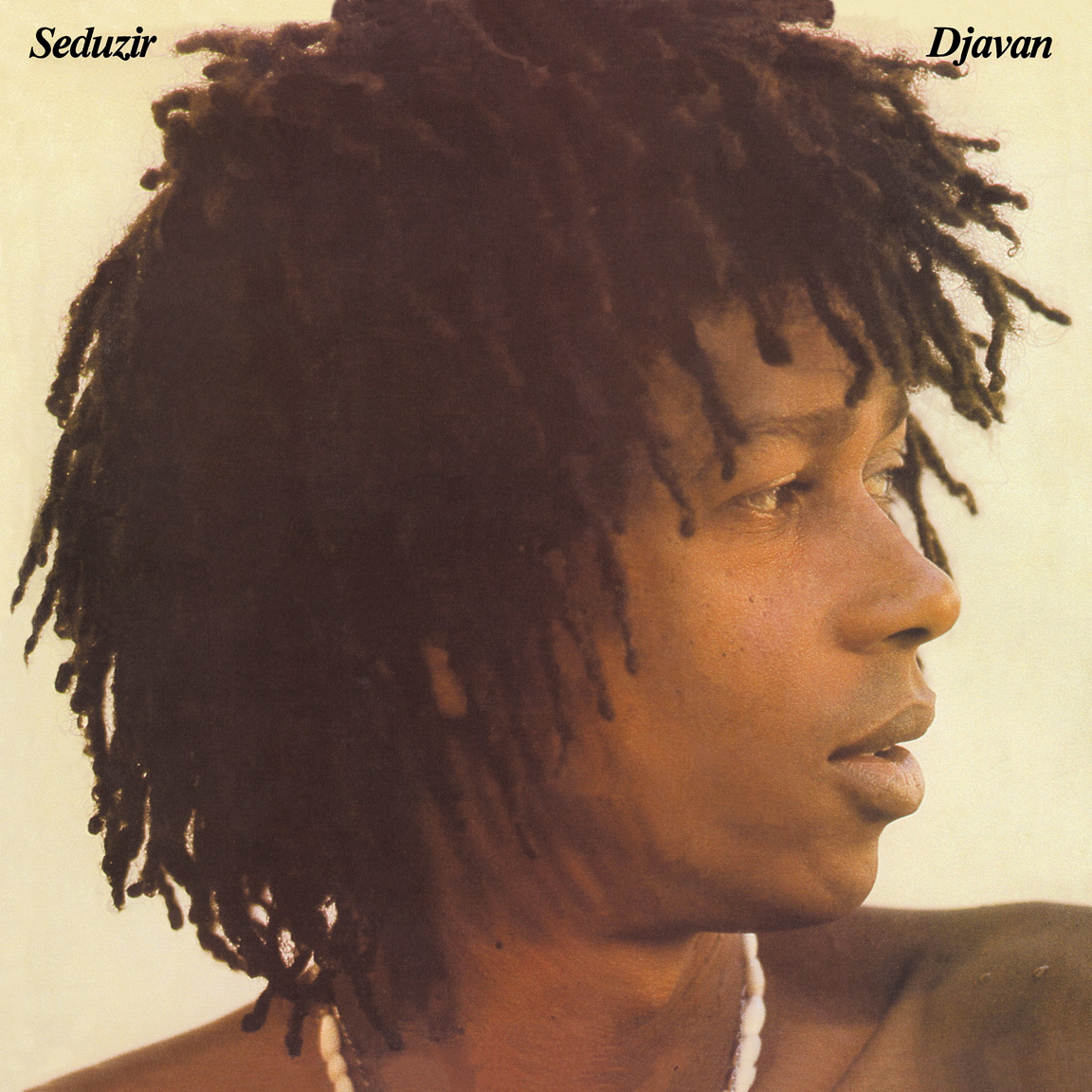Lilás
1984 CBS
CBS
Acclaimed in Brazil for his first five albums, one having been recorded in the USA two years earlier, Djavan went back to Los Angeles in 1984 to record “Lilás”. This album has the same poetic and musical sensebility but is updated with pop vibe, adapted to the international standards of those days.
The sonority of “Lilás”, produced by Erich Bulling, features Djavan’s deepest plunge into electronic resources. But he would never abandon his reliable musicians: pianist Luiz Avellar, bassist Sizão Machado, drummer Téo Lima and his USA-based friends – conductor Oscar Castro Neves and percussionist Paulinho da Costa where invited to join the team.
Besides “Lilás”, this album features a long list of radio hits: “Infinito”, “Miragem” and “Esquinas”, a song that would be turned into a big international hit by the vocal group The Manhattan Transfer.
“Lilás” is full of romantic ballads like “Liberdade” and “Transe”. Inspired by the technology used in the musical production, Djavan wrote “Irís”. But in the middle of the ballads that kept him up-to-date in the beginning of the 80’s, Djavan inserted a baião (a Northeastern danceable style): “Canto da Lira”, full of nuances, change in tempo, featuring beautiful string arrangements by Oscar Castro Neves and lyrics that declare the author’s deep faith in music.
Trying to maintain his permanent goal of carrying Brazil in his suitcase, the passage through international music inspired Djavan to write a globalized samba “Obi”, with lyrics full of foreign references, a highly syncopated rhythm, a trademark of Djavan’s sambas.
The sonority of “Lilás”, produced by Erich Bulling, features Djavan’s deepest plunge into electronic resources. But he would never abandon his reliable musicians: pianist Luiz Avellar, bassist Sizão Machado, drummer Téo Lima and his USA-based friends – conductor Oscar Castro Neves and percussionist Paulinho da Costa where invited to join the team.
Besides “Lilás”, this album features a long list of radio hits: “Infinito”, “Miragem” and “Esquinas”, a song that would be turned into a big international hit by the vocal group The Manhattan Transfer.
“Lilás” is full of romantic ballads like “Liberdade” and “Transe”. Inspired by the technology used in the musical production, Djavan wrote “Irís”. But in the middle of the ballads that kept him up-to-date in the beginning of the 80’s, Djavan inserted a baião (a Northeastern danceable style): “Canto da Lira”, full of nuances, change in tempo, featuring beautiful string arrangements by Oscar Castro Neves and lyrics that declare the author’s deep faith in music.
Trying to maintain his permanent goal of carrying Brazil in his suitcase, the passage through international music inspired Djavan to write a globalized samba “Obi”, with lyrics full of foreign references, a highly syncopated rhythm, a trademark of Djavan’s sambas.
Songs
Lyrics and credits

